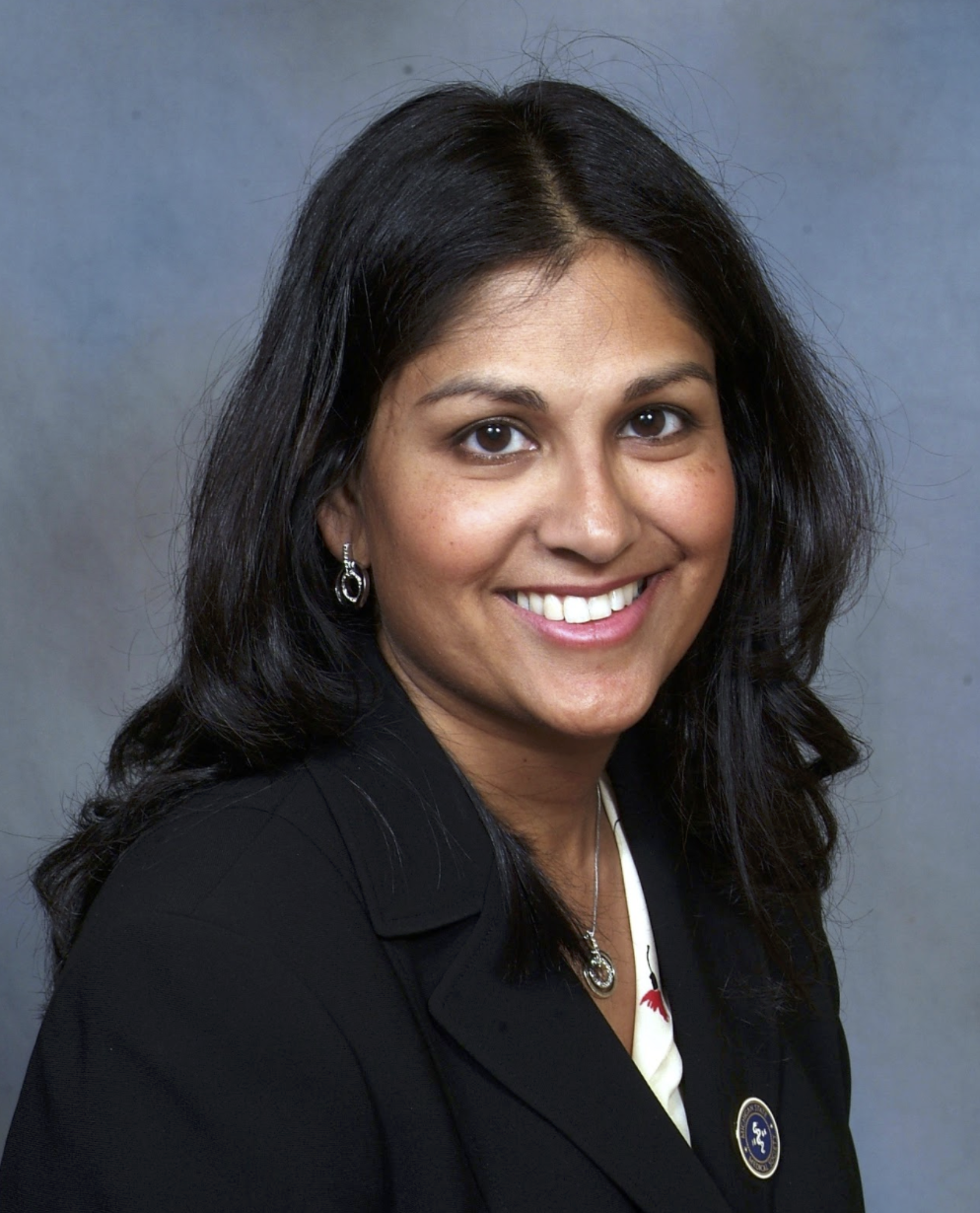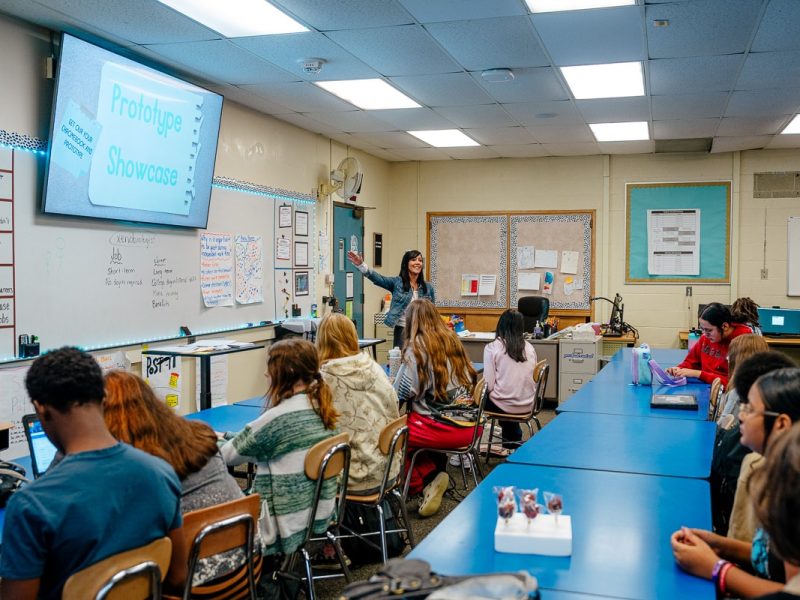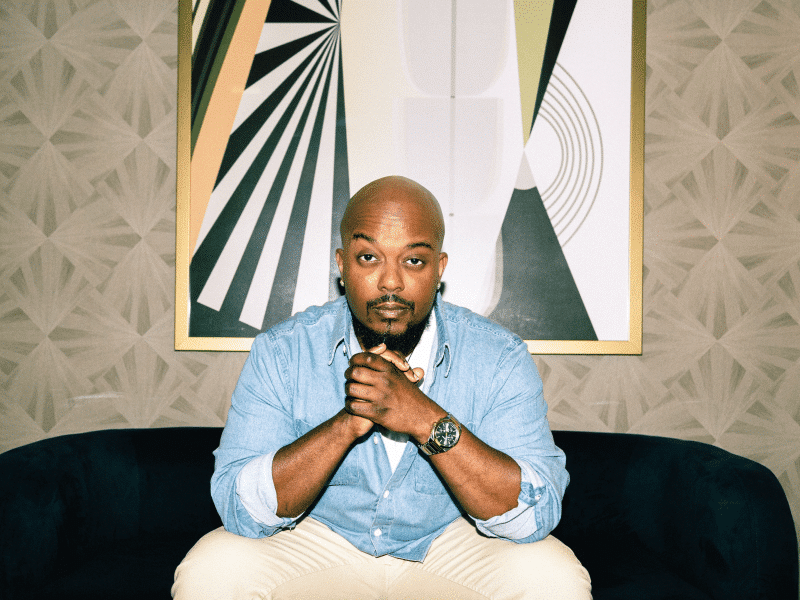“Let’s live every day to the best of our abilities”
Flint obstetrics and gynecology physician Dr. Nita Kulkarni discussed the COVID-19 vaccine in relation to pregnancy with Flintside.

FLINT, Michigan — Dr. Nita Kulkarni has been a practicing physician with a specialty in obstetrics and gynecology for 26 years in Flint, Michigan.
At the beginning of the COVID-19 pandemic, Kulkarni knew she would have to make extensive changes to protect the expecting mothers who were under her care. Women’s health and her patients’ safety have remained at the forefront of her mind since. One of the significant and most dangerous elements of the new virus is the dramatic effect it has on the clotting factors inside the body, and pregnant women are already at higher risk for clotting disorders.
Kulkarni has worked extensively to decrease vaccine barriers and decrease exposure risks to women in Flint. Flintside met with Kulkarni to discuss vaccine barriers, myths, and up-to-date research on the COVID-19 vaccine, specifically in regard to women, fertility risks, and expectant mothers.
Flintside: Tell me a little about your specialty and your work in Flint.
Kulkarni: “I do mostly GYN (gynecology) work now, I stopped delivering in March of 2019. I did my 20 years and I could not fall asleep anymore when patients were in labor. I was up every hour calling labor and delivery [at the hospital]. So I decided I couldn’t do it anymore just because I was always so worried. I moved to Flint after giving birth to my twin boys that are now going to turn 21. I took five months off with them and then started my private practice as an OB GYN physician. I delivered about five to eight babies a month. I limited my OB practice, so I could be going to the school library and on field trips and kind of balance the work-life stuff.”
Flintside: What are some changes you have had to implement in your practice because of COVID-19?
Kulkarni: “We’ve moved almost every surgery, including hysterectomies, to outpatient. Even though I go to Hurley, I don’t go to the labor floor anymore and I don’t round very much because we’re doing everything outpatient. That’s been really great for the women who needed surgery, but were afraid to have surgery. So doing things minimally invasive has been very good. The changes have been saving and changing for women. I also ask every patient, whether they’ve had Covid, or if their family members have had Covid, or whether they’ve had the vaccine or not. When the women said they have COVID, we go through what symptoms they have. Were they mild, moderate, severe? Were they hospitalized? Do they have family members who were hospitalized? That’s when we talk about the vaccine.
“A lot of women who’ve had mild disease, have already come to me and been vaccinated which is really good. I try to explain to them, even the doctors who got COVID in March and April, when they were tested by July and September of that year, they had no antibodies. Even those who had a severe case of that disease that kept people home for weeks. So, we do know that having the virus is not a hundred percent protective against the disease. It may protect you for 90 days, but now we’re being told, you can get the vaccine two weeks after being symptomatic. It is helping some of the long-haulers resolve some of the symptoms of shortness of breath and heart issues.”
Flintside: When patients ask you about the vaccine causing infertility, what do you say?
Kulkarni: “So one topic comes up, I had a mother of children call me up and say, what’s this I’m hearing about the infertility risk? So I went and looked and found out that that myth did come from a social media post from a scientist who was comparing the COVID-19 spike protein to a placental protein. Seeing how similar both proteins were. His conjecture was that maybe if you get the vaccine that your body is going to attack the placenta and that way, causing infertility through miscarriage. That was debunked and the proteins are different. American College of OB/GYN has addressed its safety as well as the The Society for Reproductive Medicine and Maternal Fetal Medicine Society. They all have looked at that protein data and there is no similarities, both proteins are not the same and the COVID vaccine won’t attack the placental proteins.”
Flintside: Is there other research that has come out in regards to pregnant or lactating mothers and the vaccine?
Kulkarni: “In the clinical trials, pregnant and lactating women weren’t included, but people inadvertently became pregnant. So we have a small amount of data from those pregnancies and so far, no complications have been observed. Women and babies did fine. The side effect profile between regular women taking the vaccine, pregnant women, and lactating women, are all the same side effects. A recent study that was very small, like 84 women, looked at pregnancy and lactating women with one shot and then two shots. They also compared it to women who were pregnant, who got COVID and looked at their antibody levels. The antibody levels from regular COVID disease was quite low in the placenta. The antibodies observed in the placenta from those who got the vaccine were quite high and protected. They did check the placental blood flow and found that there was antibodies. So there is a protective effect to the vaccine in pregnant women, we know that now. Also tracking the vaccine’s side effects through the app ‘Be Safe.’ The app has a registry of pregnant women who received the COVID vaccine and they are tracking the miscarriage rate, and any birth defects. However there is a high miscarraige rate in the first trimester from all causes. We know the risk for disease and death in pregnant women in greater than non-pregnant women.”
Flintside: What do you say to women who are planning or become unexpectedly pregnant?
Kulkarni: “I say, if you’re planning on getting pregnant, finish your vaccine course before you’re going to get pregnant, then you are protected, your baby is protected, and that’s the smartest and safest way to go. If you’ve taken the first dose and oops! You find out you’re pregnant, get the second dose. The first dose is not as effective as having both doses and with Moderna and Pfizer, there is a 90% of efficacy. We know with the cardiovascular and lung changes with pregnancy, pregnancy is already a high risk characteristic. Then you add obesity, hypertension, diabetes or asthma- your rate of severe disease goes up. So to try and avoid getting hospitalized in the Intensive Care Unit or death, finish the vaccine. We have seen pregnant women die during the pandemic due to COVID. It is really sad to see young 20-year-olds die leaving families behind, due to the severe illness.”
Flintside: A not well-known side effect of COVID-19 is how it dangerously affects our clotting factors, how does this risk affect pregnant women?
Kulkarni: “Well, we know that pregnancy increases your body [blood] clotting, right? So being pregnant is a risk factor for getting a blood clot. Then as the uterus progresses in size, and the venous blockage stops is where Deep Vein Thrombus (DVTs) are going to happen. Pregnancy is your first risk factor. A lot of people don’t know about the clotting disorder that occurs when you have COVID, right? I think a lot of people saw on the Today Show that a Broadway star who got COVID, had his leg amputated, and he eventually died. When you are already at high risk by being pregnant, from the change in clotting factors, then you add COVID also changing your clotting factors, the risk for developing blood clots is very severe. So when you look at all these emboli that are being thrown, like women who have severe, Intrauterine Growth Restrictions (IUGR), a clotting disorder in the placenta. Infections like COVID are known to cause these types of blood clots in pregnancy and can cause preterm labor.
Flintside: With these concerns, the ongoing social media myths, and risk factors, how do you stay hopeful during this pandemic?
Kulkarni: “It gives me hope that people are coming in and asking questions. If people are on the fence, what I try to tell them is, do your own homework. I will tell you all the things I know, why I gave it to myself, why give it to my parents, why I gave it to my 21-year-old sons. I want them to have babies, you know? I listened to a four-hour call [with the vaccine scientists and the CDC] and all this stuff that I have heard or learned about is all available to the public. I tell people, don’t just listen to me, go to the CDC and FDA and look at the data yourself.
“I think we’ve all learned lessons we would have never learned without the pandemic. There are some things that I think people learned from that time frame and saw that material goods are not as important as maybe we thought before. [What] has become crystal clear to people is the fragility of life. Let’s live every day to the best of our abilities.”






